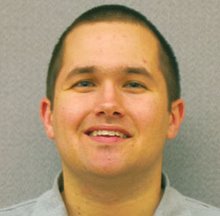This blog entry isn't really about sports. But that's sort of been the norm the past two weeks: sports teams, or sports settings, serving as the backdrop for far bigger stories.
Don Imus kicked this whole mess off with his classless and tasteless comment on April 4 about the Rutgers women's basketball team. It does not need to be, and will not be, reprinted here.
With Imus still in the news nearly two weeks later, Seung-Hui Cho opened fire at Virginia Tech, murdering 32 innocent people in a rash of senseless, tragic killings.
What now?
The killings at Virginia Tech really cemented my belief that we - the media and society both - put too much emphasis on things that just aren't worth the coverage and time we give them.
Look at Imus. He's an aging radio host, a shock jock who makes his money by saying stupid, degrading things. His comments toward Rutgers were the last in a long list of hastily uttered hateful barbs.
And then the questions came. Did this cross the line of free speech, as guaranteed by the First Amendment? Should Imus be fired?
The most important societal question was never asked: How, in 2007, do such viewpoints exist?
Firing Don Imus does not change anything. There's 200 Imus's out there, all ready and willing to say something controversial to get a check.
Then Cho opened fire, and suddenly, that Imus “story” just didn’t seem so important any more.
Colleges, sports teams and humanity in general wept and grieved together for the 32 victims.
And then the questions came. Was the Virginia Tech administration to blame? What was Cho’s parents’ role? How does the right to bear arms figure in to all of this?
Have you seen the video of Cho holding a gun, posing like a maniacal, self-proclaimed martyr? I will always be convinced that what happened at Virginia Tech could never have been prevented. One man, so full of rage and evil, of venom and misguidance, could not have been stopped.
So here’s the next question. How do we – or can we – make sure this never happens again?
Sunday, April 22, 2007
Subscribe to:
Post Comments (Atom)

6 comments:
You said it!
Brad -
My thinking on this is: what if it were possible to prevent the media from using the name, likeness, photo, etc. of anyone who does something like this. This guy was obviously after recognition, and now everyone knows his first, middle, and last name.
Sort of like the guy who streaks across an NFL football field on a Sunday afternoon, the announcers don't mention it, and they never show him on TV.
Do you think the public has a right to know all about these nut cases?
Enjoying your blog!
H. Villaneuva
Mr. Villanueva,
You bring up a very compelling point.
I think the big thing is that, under the First Amendment, it's not possible to keep information from the media or the public. Arrest warrants and all public records are available to both the media AND the public in general. If someone refuses to release the information, a Freedom of Information Act request will force them to.
I think what sets this case apart from other school shootings is what you were referring to: that the killer made sure everyone knew his name. It’s pretty twisted that he killed two people, and then calmly walked to a post office and mailed a video tirade to NBC, knowing full well that it would be shown on TV. He made it about him, and in turned forced the media to make it about him, as opposed to telling stories about the victims.
Even in those circumstances, I would still say this definitely falls under the umbrella of the public's "right to know."
It is a twisted mind that kills people to bring themselves posthumous notoriety. I don't see any way we can discourage these senseless acts without censoring the information from the public.
H.V.
H.V.,
I don't see any way we can discourage these senseless acts AT ALL.
If Seung-Hui Cho never made a video tape and never mailed it to NBC, I think he still would have gone on his rampage.
If not him, then someone else would have gone on a shooting rampage at some point in the future.
I think it's a societal issue. In America, you want to build the biggest building, buy the biggest car .. and, yes, have the biggest guns.
The shootings at Columbine were premeditated, but the killers didn't make a "manifesto" and send it to NBC. Clips and videos of them were found later.
The so-called reasons for those shootings - aloofness, "rich" kids and cliques, to name a few - were so incredibly evident simply by reading Cho's plays and poems, or by reading Dylan Klebold's journal.
Just to finish up my last thought, I think my point is that Dylan Klebold and Eric Harris didn't leave a manifesto or anything like that, and people still knew why they shot students at Columbine.
The biggest thing for me, I think, is that I honestly don't believe there is any way to prevent this.
Some people, like you said, are simply sick and twisted.
And that's absolutely frightening.
Post a Comment